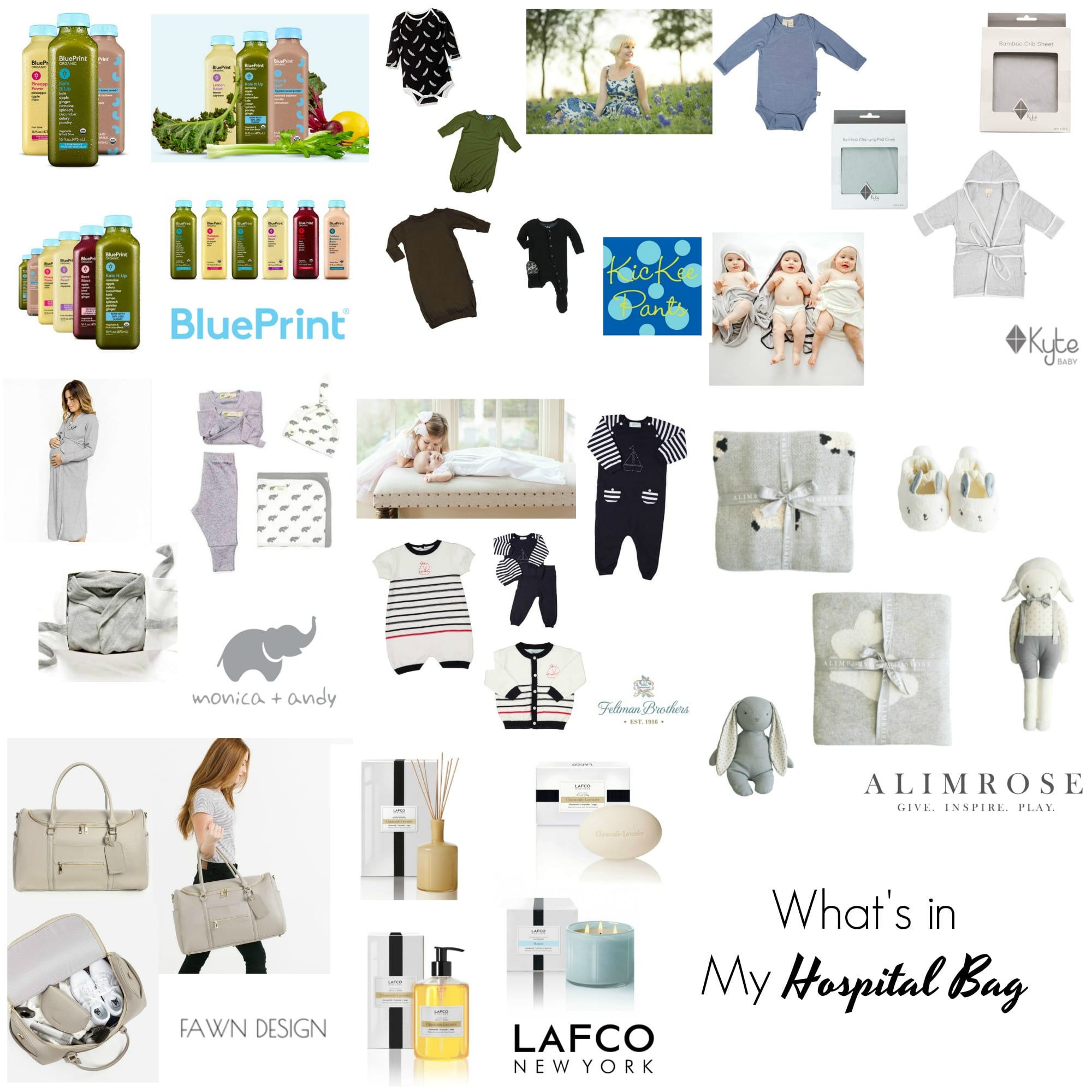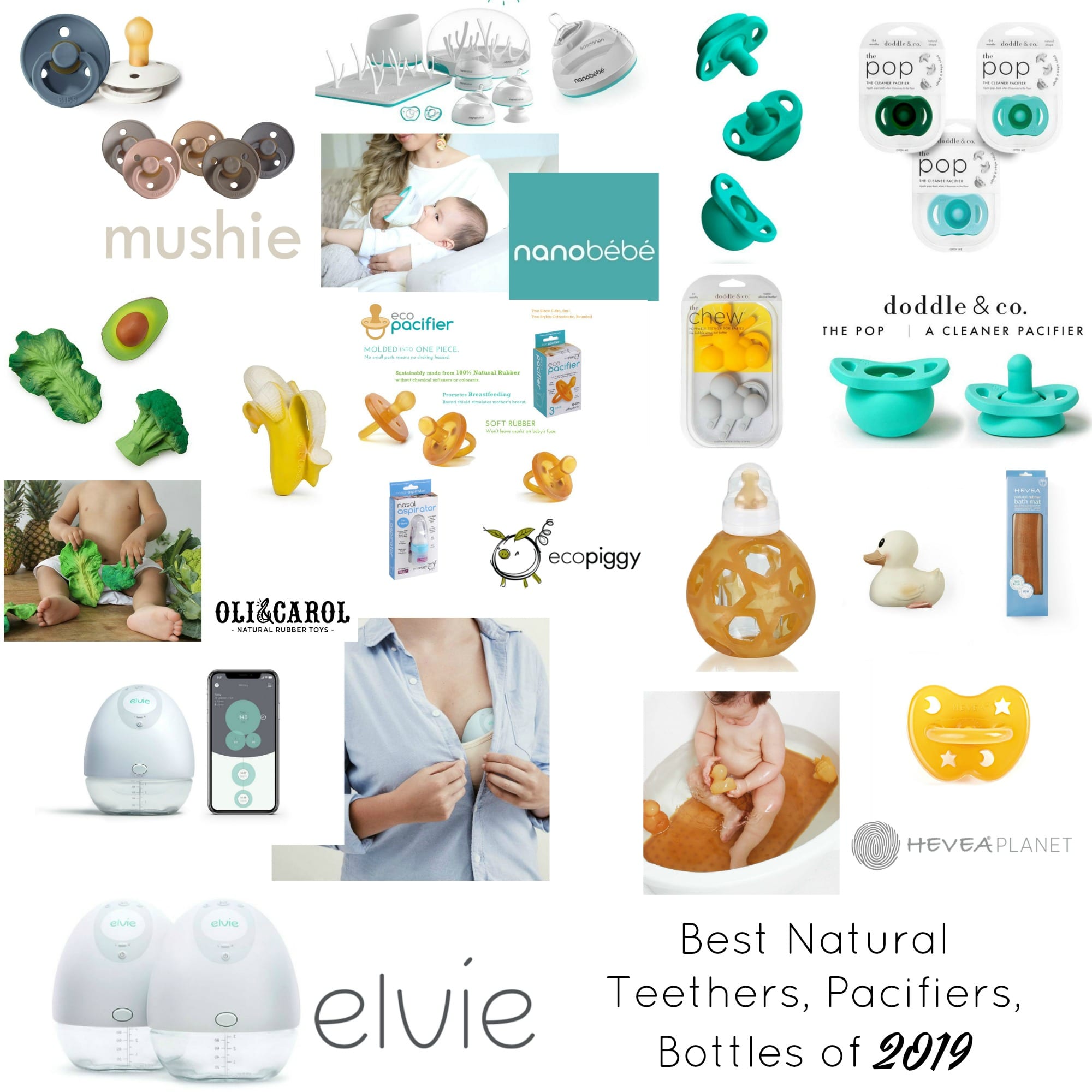Prebiotic’s 101
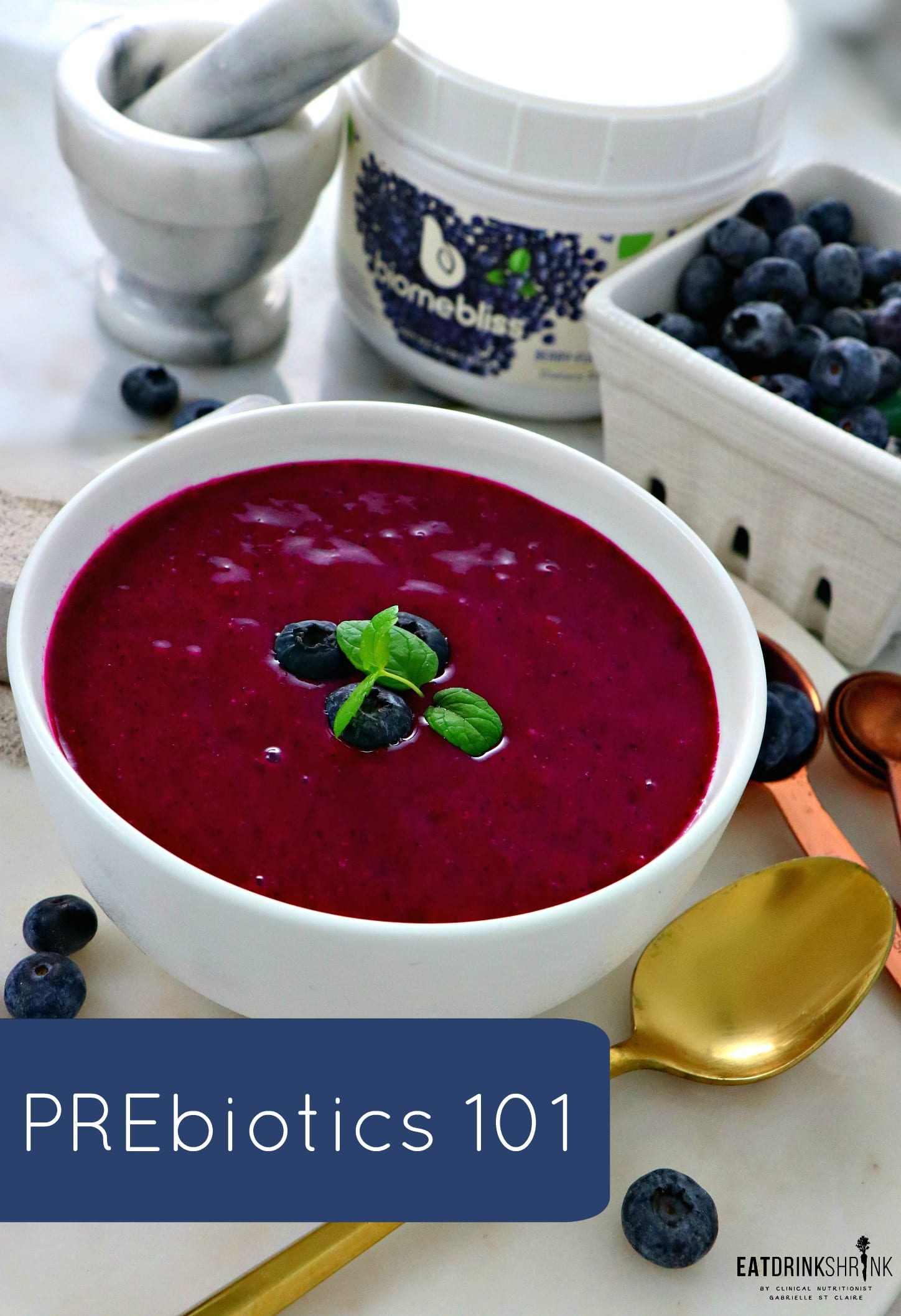
Let’s talk about probiotics and probiotics! Within the past 5 years, probiotics and prebiotic’s have been gaining more momentum as studies are showing that our gut health determines our overall health. So let’s break it down!
When we refer to gut health, we’re talking about your lower intestine where nutrients are extracted. Your microbiome in the gi tract absorb the nutrients from food. Depending on the diversity in your microbiome, it can actually determine your ability to effectively extract nutrients and even set the tone for what your body may crave.
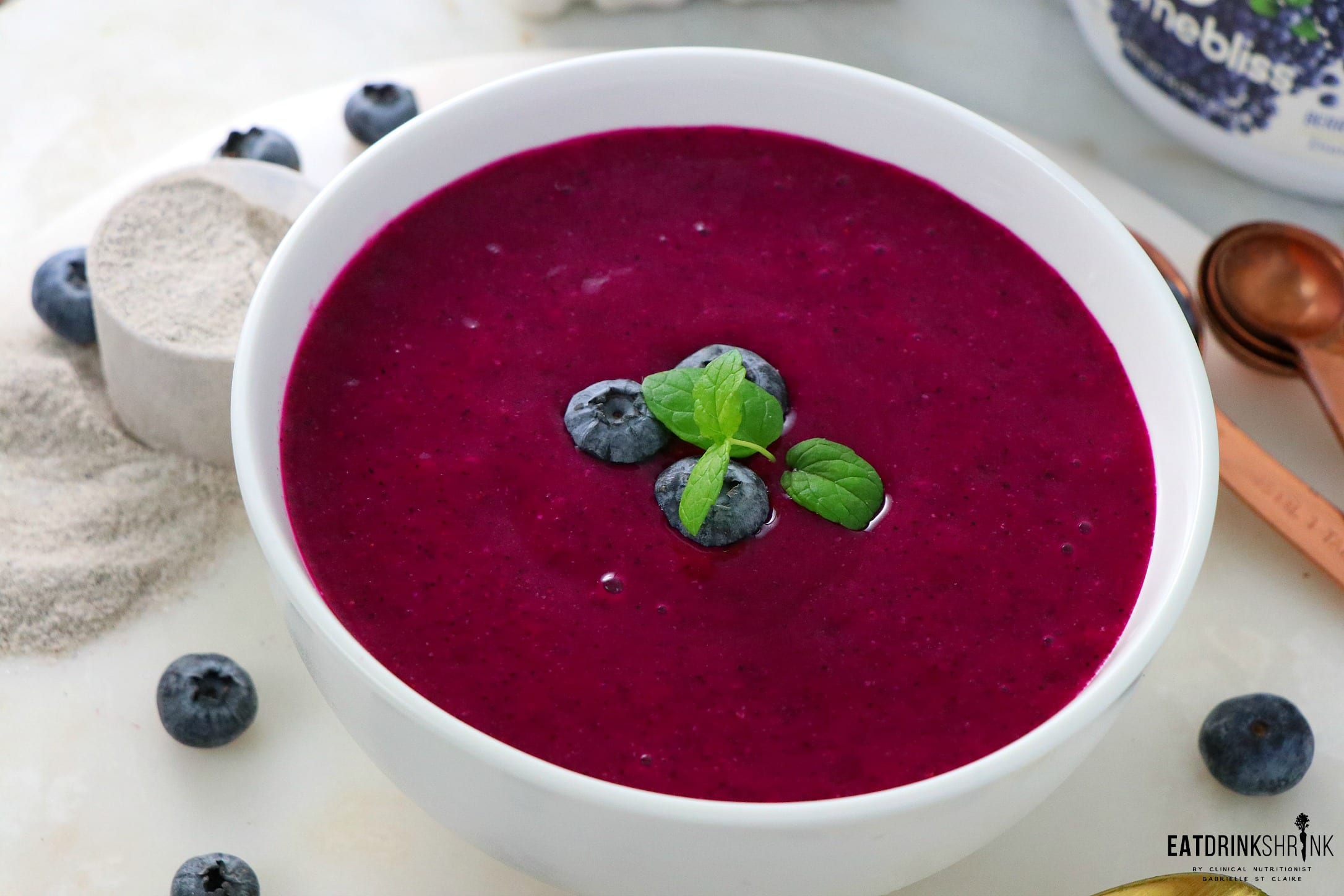
- Probiotics: These are live bacteria found in certain foods or supplements. They can provide numerous health benefits.
- Prebiotics: These substances come from types of carbs (mostly fiber) that humans can’t digest. The beneficial bacteria in your gut eat this fiber. Research has shown that higher intakes of prebiotics foods can increase numerous probiotic microorganisms, including Lactobacillus rhamnosus GG, L. reuteri, bifidobacteria, and certain strains of L. casei or the L. acidophilus-group. (4)
The beneficial bacteria in your gut uses the indigestible prebiotic fiber content from the foods that you eat as a source for their own survival. As your gut bacteria metabolize otherwise non-digestible fibers from foods, they produce short-chain fatty acids, which are compounds that boast a wide range of benefits
Prebiotic’s have been shown to improve: (3)
- lower risk for cardiovascular disease
- healthier cholesterol levels
- better gut health
- improved digestion
- lower stress response
- better hormonal balance
- higher immune function
- lower risk for obesity and weight gain
- lower inflammation and autoimmune reactions
Research:
When we are born our guts are sterile and colonize the moment we are born. Studies show that babies who are born vaginally actually have a more diverse microbiome as they are exposed to natural secretions and in the long run have decreased chances of illness later on versus babies born via C section. (1)
What’s even more intriguing about our gut bacteria is that we can carry different amounts of different strains. Studies have shown that those with more fermicutes extract nutrients at a faster rate, leading to an increased likelihood of being overweight. That being said, sometimes our susceptibility to weight gain reaches beyond our genetics and can even be determined by our gut bacteria. A study conducted in the Ukraine found that an adult population havd a significantly higher level of Firmicutes and lower level of Bacteroidetescompared to normal-weight and lean adults. (2)
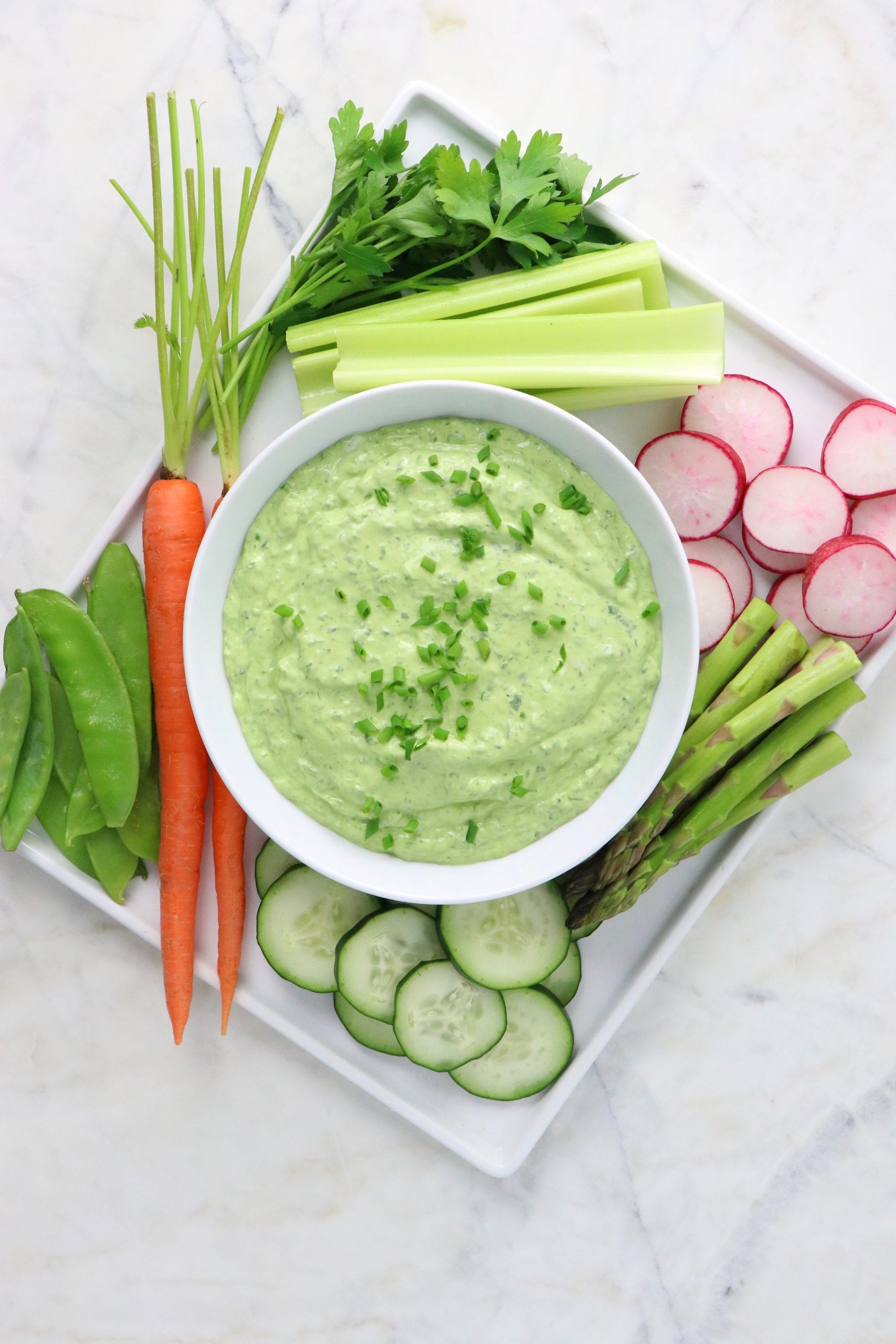
Another way that microbes may influence our weight is by altering receptors throughout the gut. For example, microbes that may prefer sugar can then cause the body to increase the number of sweet receptors through the gut. Which then lead to craving more sugar as the increase number of receptors usually translates to a greater desire for these foods.(11)
Given the above data alone, it’s safe to say that focusing on developing a healthy gut is imperative today. Especially being that some factors that predetermine our gut bacteria are out of our control.
Another area of research I’ve always been intrigued with are the studies conducted on broccoli sprouts and mitigating rates of cancer. Broccoli sprouts are rich source of glucoraphanin, a precursor of sulforaphane. Sulforaphane, an isothiocyanate, has anticancer effects against prostate (5), breast (6, 7), and urinary cancers (8). It may also protect the skin from ultraviolet radiation (9).
While the positive effects of consuming broccoli sprouts are abundant, something to keep in mind is the quality of our gut health. If one doesn’t have a healthy gut, you can’t even absorb the beneficial properties of broccoli sprouts to experience the full effects. This is just an example of the positive effects that one may be unable to experience as a result of poor gut health.
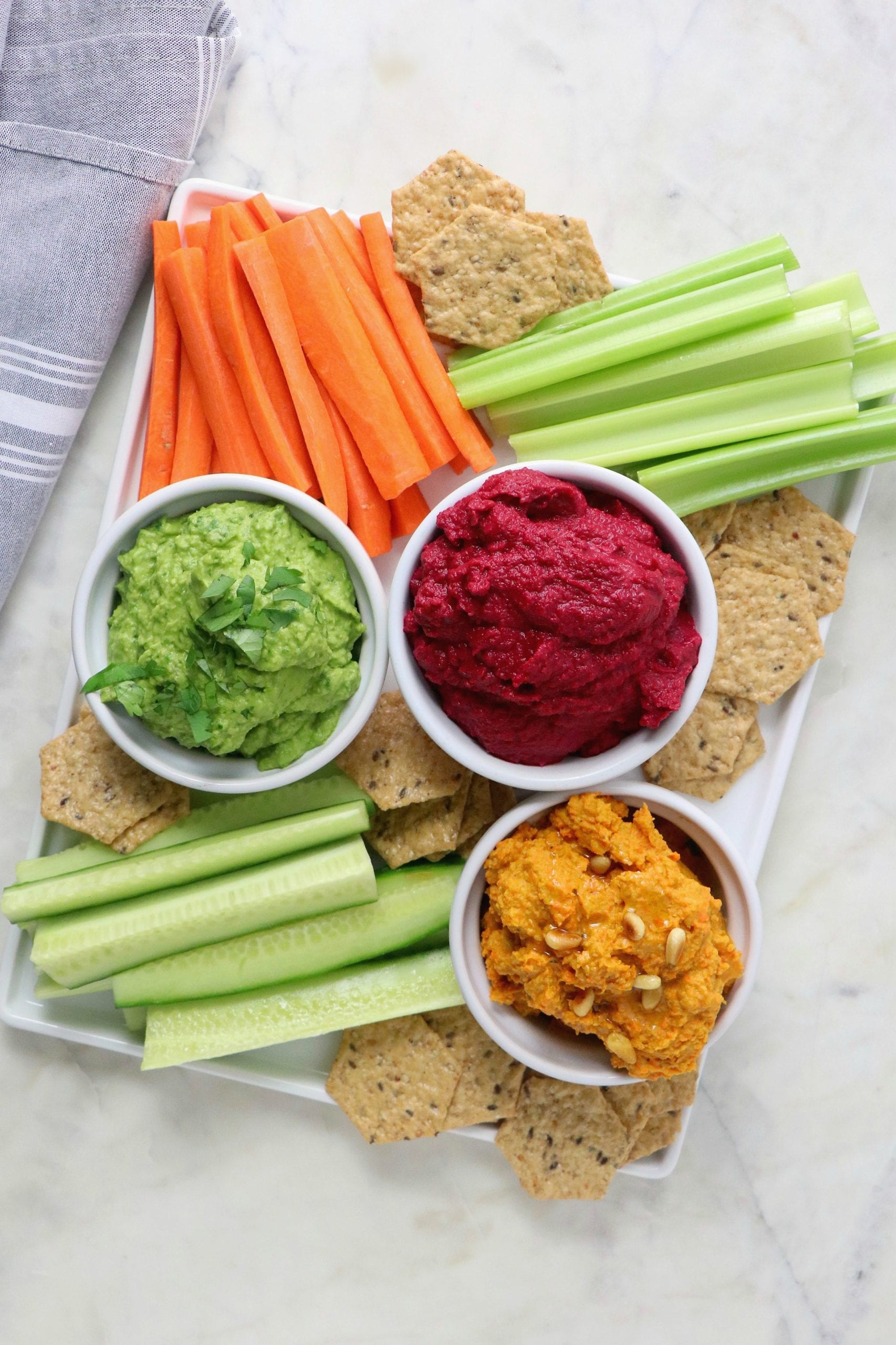
In addition to consuming probiotic supplements, prebitoics can be derived from a variety of foods such as yogurt, kimchee, oats, barley, garlic, onion, asparagus, sauerkraut, kombucha, and soy. However, if consuming these foods on a regular basis to improve the gut is somewhat of an obstacle, taking a prebiotic supplement such as Biomebliss is a great option!
You can toss it in water, juice, or my preference a smoothie! The flavor is mild and it’s a great way to ensure that you’re getting more probitioics in the diet. Paired with bananas that are rich in probiotics, smoothies are my favorite option.
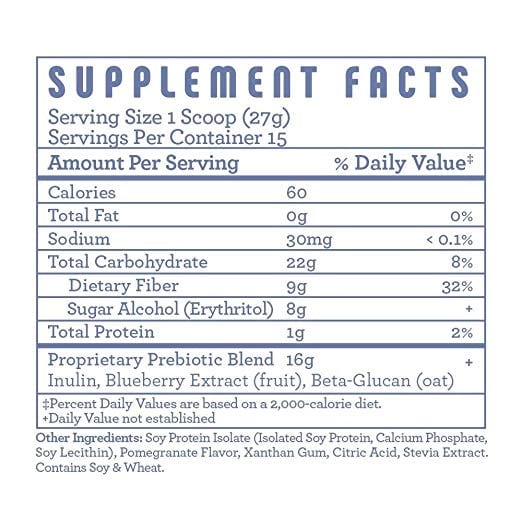
The product is comprised of beta glucan, inulin, antioxidants,
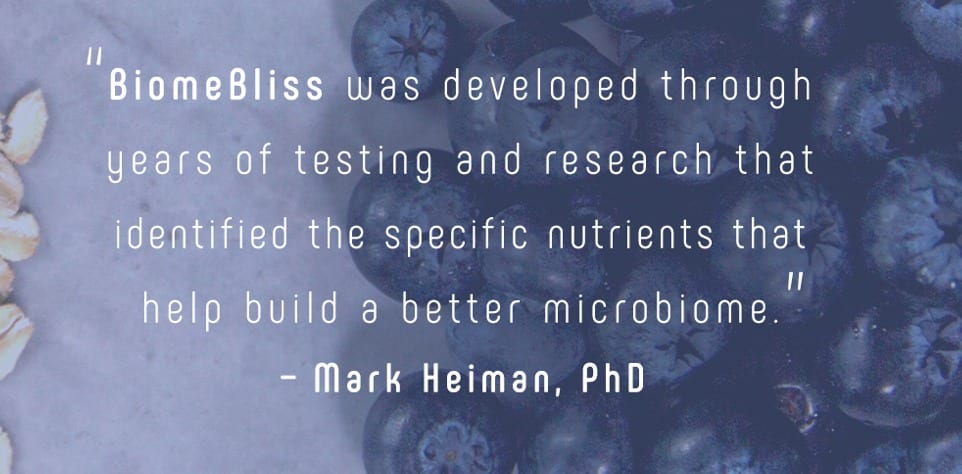
Decades of Discovery:
Since our inception in 2010, we have focused on the science of the microbiome. We’ve learned how food choices today are often missing key nutrients required by the bacteria in the gut to maintain diversity and healthy function. BiomeBliss helps you fill the gaps that may be left by your normal diet.
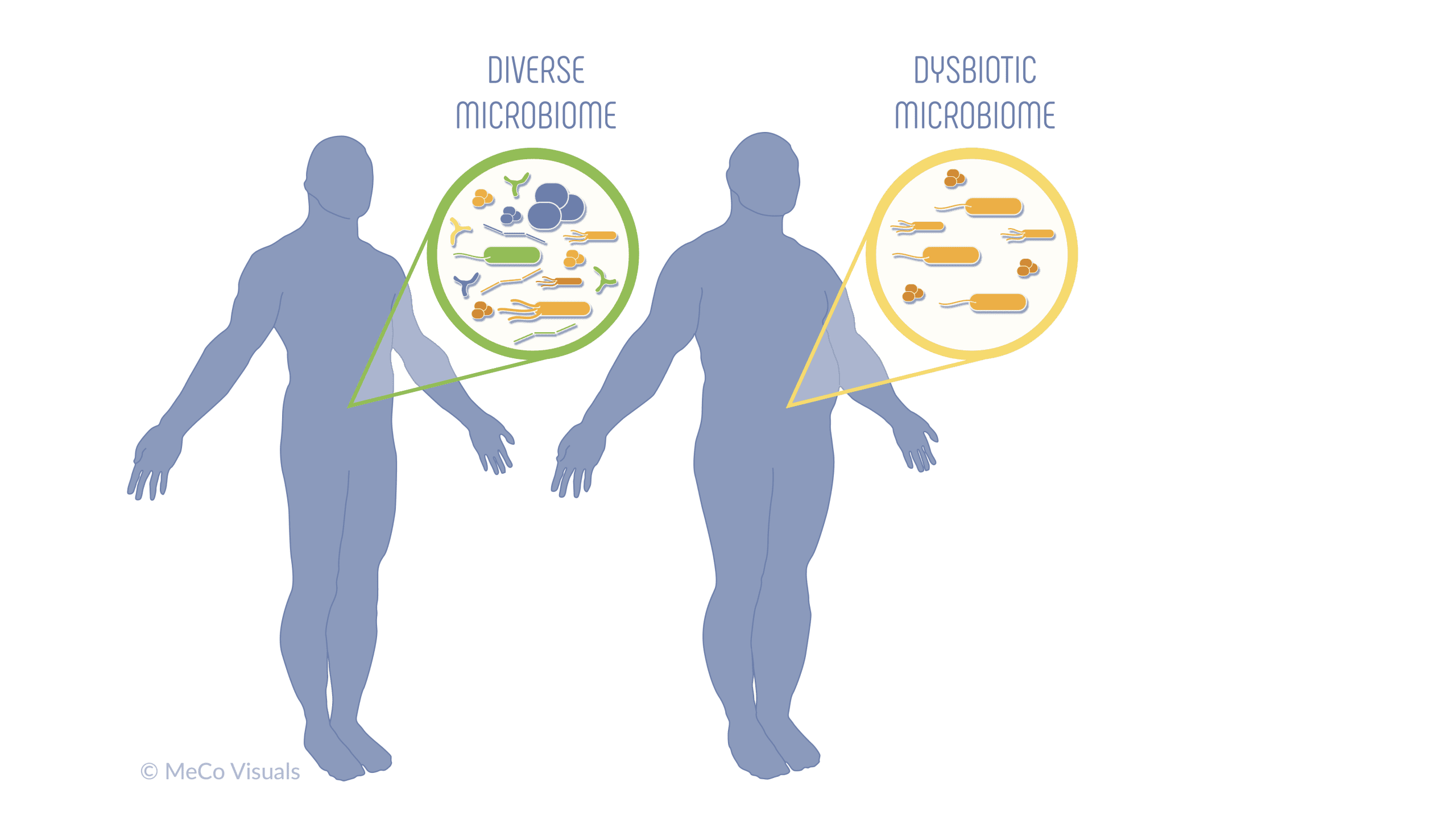
How it works:
Your microbiome communicates with physiological systems of your body, such as the immune, nervous and endocrine systems. Encouraging a greater microbiome diversity can help those signals and result in a wide range of benefits. Studies show that people with a greater microbiome diversity are generally healthier and have lower body weight. When there is a microbiome imbalance, or dysbiosis, this can have consequences to health.

Recognized as a leader in the emerging science of the microbiome, Mark Heiman, PhD, is a Fellow of the Obesity Society and serves on the editorial boards of prominent scientific journals. During his 20+ years at Eli Lilly and Company, he served as CSO of obesity research. He is the author of more than 100 papers, has helped develop 30 drug-related patents and was a co-inventor of the successful drug Lanreotide. Mark has spent the last ten years studying ways natural food extracts can be used to orchestrate a healthy microbiome for human health.
Citations:
1. G, Rubini M, Riboni S, et al (2010). Mode of delivery affects the bacterial community in the newborn gut. Early Human Development 86:S13-S15
2. https://www.ncbi.nlm.nih.gov/pmc/articles/PMC5440985/
3. https://www.ncbi.nlm.nih.gov/pubmed/23609775
4. https://www.ncbi.nlm.nih.gov/pubmed/18461293
5. Abdulah R, Faried A, Kobayashi K, et al. Selenium enrichment of broccoli sprout extract increases chemosensitivity and apoptosis of LNCaP prostate cancer cells. BMC Cancer. 2009;9:414.
6. Li Y, Zhang T, Korkaya H, et al. Sulforaphane, a dietary component of broccoli/broccoli sprouts, inhibits breast cancer stem cells. Clin Cancer Res. 2010;16(9):2580-2590.
7. Fahey JW, Haristoy X, Dolan PM, et al. Sulforaphane inhibits extracellular, intracellular, and antibiotic-resistant strains of Helicobacter pylori and prevents benzo[a]pyrene-induced stomach tumors. Proc Natl Acad Sci U S A. May 28 2002;99(11):7610-7615.
8. Munday R, Mhawech-Fauceglia P, Munday CM, et al. Inhibition of urinary bladder carcinogenesis by broccoli sprouts. Cancer Res. Mar 1 2008;68(5):1593-1600.
9. Talalay P, Fahey JW, Healy ZR, et al. Sulforaphane mobilizes cellular defenses that protect skin against damage by UV radiation. Proc Natl Acad Sci U S A. Oct 30 2007;104(44):17500-17505.
10. Cancer J. 2014 ; 20(3): 170–175. doi:10.1097/PPO.
11. https://www.ncbi.nlm.nih.gov/pmc/articles/PMC4270213/



